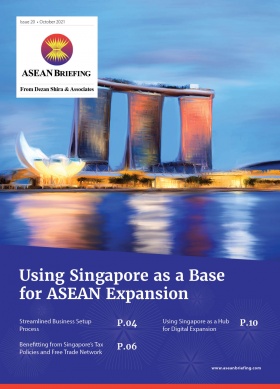Laos Reduces VAT Rate to Support the Post-COVID-19 Economy
Laos has reduced its value-added tax (VAT) rate as part of the government’s support of the post-COVID-19 economy.
Presidential Decree No. 231/P, which was dated on December 21, 2021, and makes amendments to the country’s VAT Law, reduces the standard VAT rate from 10 percent to 7 percent. Further, the amended law adds more activities that are exempted from VAT and there is a new VAT calculation for minerals and electricity-related activities.
Laos’ manufacturing sector saw a decline from 6.7 percent in 2019 to 5.8 percent in 2020 and some tourist destinations lost over 70 percent of revenue in 2020.
The amended VAT Law has come into effect on January 1, 2022.
What are the amendments to Laos’ VAT Law?
VAT reduction
The standard VAT rate for the supply of goods and services, and importing goods is reduced from 10 percent to 7 percent.
More activities exempted from VAT
Activities that are exempted from VAT will now include:
- The import of electricity to supply Laos;
- Minerals exported overseas or to special economic zones (SEZs);
- The export of electricity to SEZs or overseas; and
- The supply of electricity to any electricity enterprises within Laos.
The electricity and mineral-related activities that are subject to VAT have a separate and specific basis for VAT calculation:
- For the supply, sale, purchase, trade, self-use, exchange, export, or gifting of minerals, the VAT basis for VAT calculation is the actual purchase price, the price specified by the government, or the international market price;
- For the import of minerals, the basis for VAT calculation is the actual purchase price specified by the government or the price at the border. This is before any additional applicable import duties;
- For electricity generated by a business or consumer, the VAT basis is the tariff rates prescribed from the government or the rates based on the power purchase agreement; and
- For electricity producers, the VAT basis is the contractual price agreed in the power purchase agreement.
New activity now subject to VAT
The supply of goods outside of SEZs by a business registered to operate in the SEZ is now subject to VAT. Previously, only services supplied outside of SEZs by SEZ-registered companies were subject to VAT.
Additional conditions for deductible input VAT
Input VAT deductions can only be made if the payment for the relevant purchase and sale of goods and services was made through a bank in Laos.
Further, any input VAT to which the 10 percent rate is applicable, but which has not been claimed before the end of 2021 can not be deductible as input VAT.
Further Reading
- The Completed China-Laos Railway: Bringing Opportunities for ASEAN and the Asia Pacific
- How to Claim Investment Promotion Incentives in Laos: New Guidelines in Effect
- Tax Identification Numbers in Laos: Compliance by June 2021
About Us
ASEAN Briefing is produced by Dezan Shira & Associates. The firm assists foreign investors throughout Asia and maintains offices throughout ASEAN, including in Singapore, Hanoi, Ho Chi Minh City, and Da Nang in Vietnam, Munich, and Esen in Germany, Boston, and Salt Lake City in the United States, Milan, Conegliano, and Udine in Italy, in addition to Jakarta, and Batam in Indonesia. We also have partner firms in Malaysia, Bangladesh, the Philippines, and Thailand as well as our practices in China and India. Please contact us at asia@dezshira.com or visit our website at www.dezshira.com.








